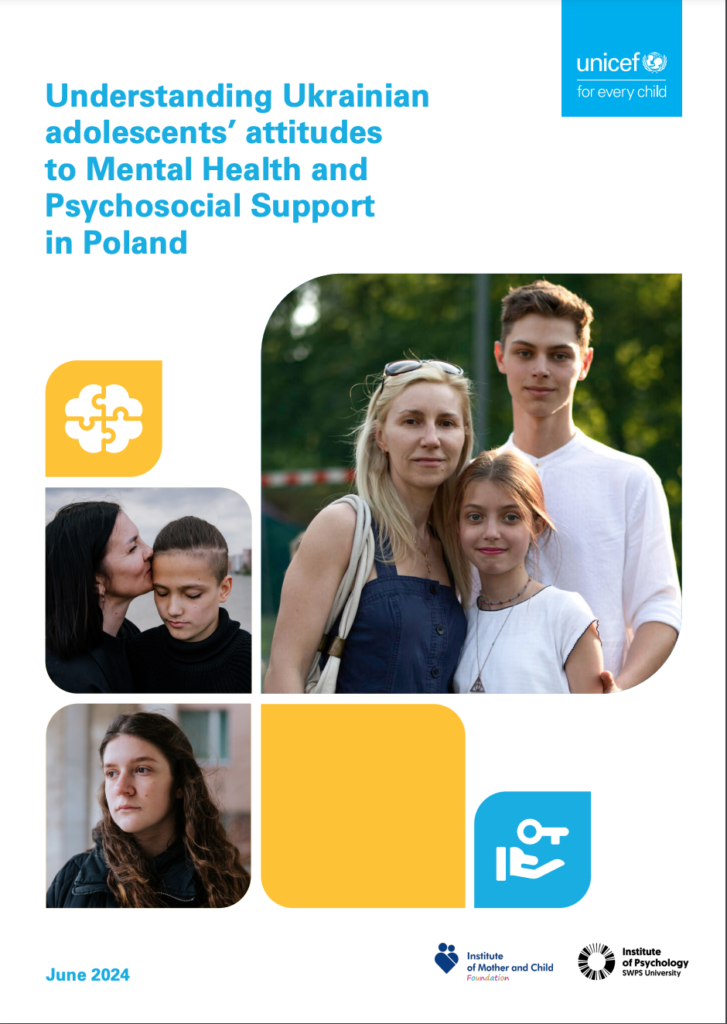Poland has been on the frontline of the Ukrainian refugee crisis since the escalation of the war in Ukraine in February 2022. Over 950,000 Ukrainian refugees remain registered for temporary protection, 38% of whom are children. Many face significant challenges, including social isolation, language barriers, and high levels of stress. UNICEF’s Mental Health and Psychosocial Support (MHPSS) initiatives have reached more than 700,000 children and caregivers, offering services such as Psychological First Aid, community-based psychosocial support, and psycho-educational workshops. However, barriers such as stigma and cultural norms persist, particularly for adolescents navigating a new environment.
In response to these challenges, the study on Ukrainian adolescents’ attitudes toward mental health and psychosocial support in Poland, commissioned by UNICEF, provided critical insights into their unique needs. Triangle contributed to the research as a key partner, supporting the effort with a comprehensive mixed-methods approach. This included conducting Key Informant Interviews (KIIs), Focus Group Discussions (FGDs), and randomized controlled trials (RCTs) while operationalizing UNICEF’s Behavioral Drivers Model. The findings underscored the importance of culturally sensitive and targeted interventions, with recommendations focusing on reducing stigma, enhancing peer-driven support systems, and increasing parental education to improve access to MHPSS for this vulnerable population.
